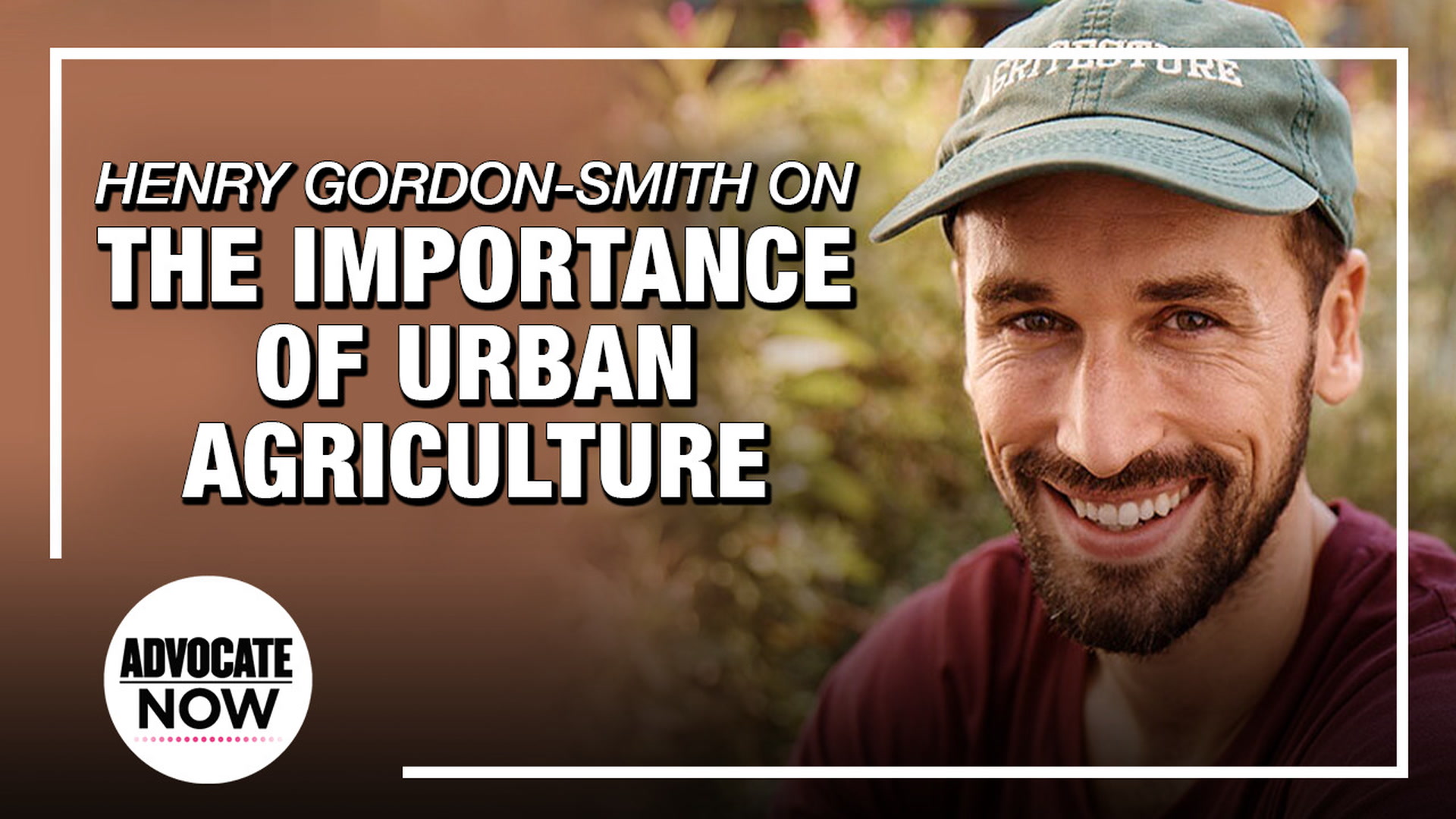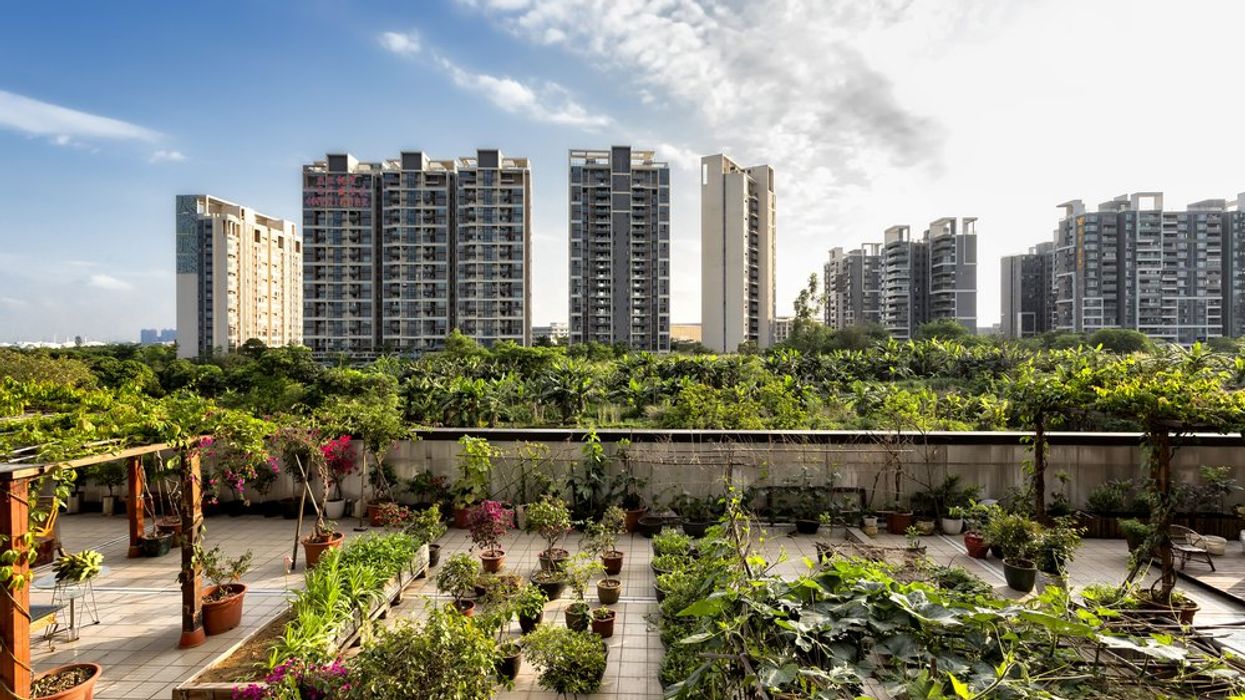As droughts and food scarcity become more common, many people are wondering how they can make their homes more sustainable. While the solution lies in combating climate change, there are still a few steps you can take at home, even if you live in a city.
The practice of "urban agriculture" has become more popular in recent years, as people in cities have taken to growing their own food despite the apparent lack of space. According to Henry Gordon-Smith, founder and CEO of Agritecture, "urban agriculture is the production and distribution and also the policies that allow us to grow food in and near the city."
Henry Gordon-Smith on the Impact of Urban Agriculture

"A lot of people think of it as something that's quite new. But if you look back, we always built cities where there was food that we needed to survive on," he tells Sonia Baghdady of Advocate Now. "And so now there's sort of a renaissance that's happening to bring agriculture back to the city, whether it's to improve food security, resilience, climate change, improve health and well-being, or even equity."
Agritecture is an advisory services and technology firm focused on urban and controlled environment agriculture. While it may seem to difficult to grow food in a city, Gordon-Smith's company often utilizes the practice of "vertical farming," a term first coined by Dr. Dickson Despommier in his book, The Vertical Farm: Feeding the World in the 21st Century.
"Vertical farming typically refers to the cultivation of plants indoors," Gordon-Smith explains. "Now, you can do some outdoors, but most of them are happening in warehouses and basements, and sometimes are being integrated into buildings."
There are many important practices that can facilitate farming indoors, especially as "there's a lot less space around in these big cities, and real estate prices have gone crazy," Gordon-Smith says. The practice can also reduce the use of "resources such as water and also eliminate the need for pesticides."
"There's a method of production called hydroponics, which allows you to grow without soil and create these recirculating systems," he says. "And you can also take those systems and put them indoors and power them by LED lights, which create the spectrum that the plants need to grow, replacing the sun."
As areas across the globe feel the detrimental effects of climate change, Gordon-Smith says that sustainable practices such as urban agriculture and vertical farming can create a "buffer" that will "make us more resilient."
"There are really big challenges that we're going to face in society and especially in agriculture," he says. "So we want to create a buffer, right? We want to create something that helps buffer those challenges and makes us more resilient. And it starts with our youth: teaching them how to grow food, how to select seeds, and how to manage these systems in schools."
For more interviews like these, watch Advocate Now on The Advocate Channel.



















































